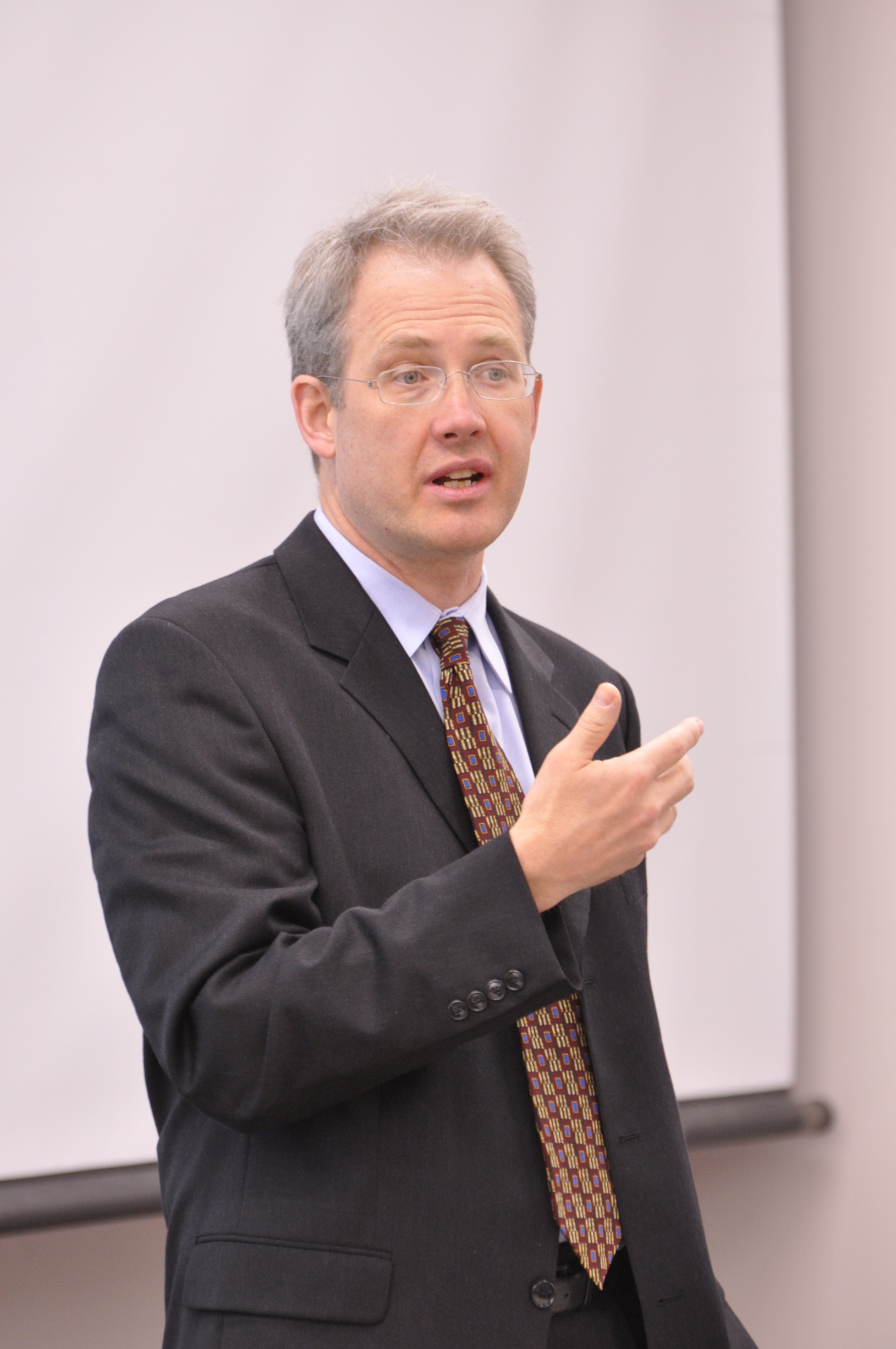Innovator shares success tips with USU students
Successful innovation brings together a need and a solution, said professor and entrepreneur Karl Ulrich, speaker at Wednesday’s Dean’s convocation.
Ulrich is a professor at the Wharton School of the University of Pennsylvania, teaching entrepreneurship and e-commerce. He is also responsible for the creation of Gushers, a fruit snack made by Betty Crocker, which has accumulated $6 billion in revenue. Over the course of Ulrich’s career as an entrepreneur, he has been granted 20 patents for his innovative designs. His latest success is his recently published book “Innovation Tournaments” that he co-authored with Christian Turwiesch. Ulrich said that though he has pursued many business ventures and continues to do so, he feels most at home in the classroom.
“Most of my best ideas for my research has come out of the classroom,” Ulrich said.
Ulrich said “Innovation Tournaments” provides trustworthy methods to become a successful innovator. Innovation tournaments contain three features, he said. The first feature requires the innovator to consider a large number of opportunities so chances of success are high. The second feature insists the innovator’s ideas go through some type of filtering process, Ulrich said, and third, the best product must be chosen depending on the results the filtering process yields.
In addition to the three features, innovation tournaments have four ways in which they contend with competing businesses, and he referred to them as the “four levels on tournament.”
“If you do nothing else, generate more ideas,” Ulrich said as his first tip to entrepreneurial success.
Next, it is important to shift the quality of the ideas the innovator is producing, he said. Then the ideas’ qualities must increase in variance and, finally, the accuracy of the ideas’ results must increase.
“A tournament has to generate a set of candidates and has to discriminate between the good and bad ones,” Ulrich said.
A good way to test whether an idea is good or bad is through a program run through www.darwinator.com, which allows user to run their own tournament, Ulrich said. The user submits a number of original ideas, and the program will evaluate which ideas are better than others.
Ulrich said there are three horizons to innovation which relates to the uncertainty the entrepreneur and idea face. The first horizon describes an idea that requires the least amount of risk. This idea is usually an improvement to a product or service that already exists, he said. The second horizon means the invention’s success is more uncertain than a horizon-one invention. These inventions are usually solutions to existing needs. A third-level horizon is a concept the world has never seen before.
“We are looking for exceptional opportunities – opportunities that we are likely to yield much more than we put into,” Ulrich said.
Innovation creates value, Ulrich said, which means the innovation is worth more to the consumer than it takes the manufacturer to produce. He said innovation does not only pertain to inventions that are objects, but can be human services or a new solution to a business process. Ulrich said one example of this alternate innovation is specialty images placed on credit cards. Capital One had this service available for clients and offered the image of any professional wrestler as the card’s background.
Ulrich said, “On one hand, I’ve had a passion for entrepreneurship, and, on the other hand, I’ve had a passion for teaching.”
Ulrich didn’t start his business until he had been teaching for a while and felt uncomfortable that he hadn’t experienced what he was teaching. He decided to take a year off to further the success of his invention of the Xootr Scooter and Swift Folding Bike, which he said did poorly, and went back
Along with inventions assisting transportation and the creative food industry, Ulrich has been involved in Web-based service, medical tools and sporting equipment innovations. He received his bachelor’s, master’s and doctoral degree at Massachusettes Institute of Technology. He co-authored a textbook, titled “Product Design and Development,” used worldwide.
– catherine.meidell@aggiemail.usu.edu

